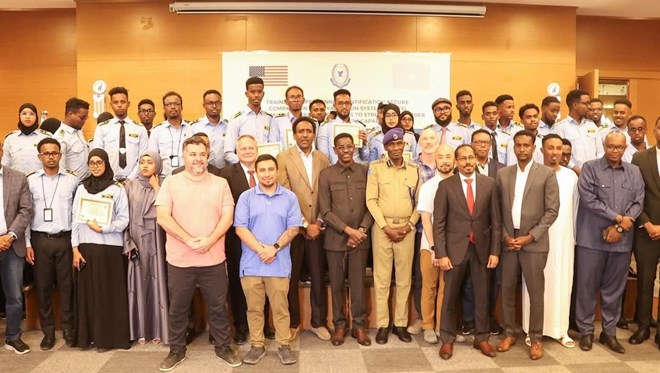The Federal Government of Somalia has officially implemented a new biometric system to secure borders, address human trafficking, reduce illegal immigration, and prevent domestic and international security threats. The system is supported by the United States Government.
The implementation of the system follows a four-day training course in Mogadishu, where U.S. experts trained Somali immigration officials on the use of the Personal Identification Secure Comparison and Evaluation System (PISCES) – a biometric program developed by the United States Government and used at major ports of entry into the country.
The system allows Somali immigration authorities to directly check international alert lists, detect fraudulent IDs, and track the movements of suspicious individuals.
Mustaf Dhuxullow, Director General of the Somali Immigration and Citizenship Authority, said:
“This is not just a technological development, it is a step to protect our people and build public trust.”
The training was facilitated by the U.S. Embassy in Somalia.
The Somali government also introduced a new third-generation passport with biometric chips and robust anti-forgery systems, in line with international standards. This provides citizens with secure identification and limits its illegal use by criminal networks.
The U.S. Embassy in Mogadishu has worked closely with the Somali Immigration Service and U.S. security agencies to ensure the successful implementation of these new systems.













